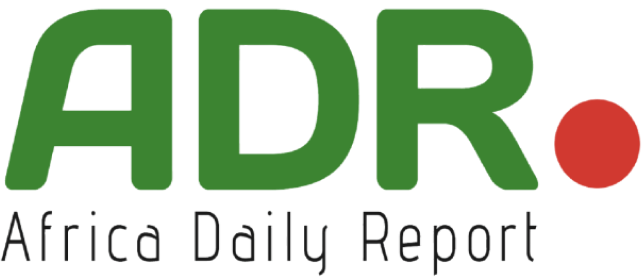
Introduction: A Landmark State Visit
President Bola Tinubu’s upcoming visit to France on November 28 and 29 marks a significant milestone in Franco-Nigerian relations, being the first Nigerian state visit to France in 24 years. This event underscores a broader realignment in France’s African strategy, pivoting from a security-dominated approach to a business-first agenda. Against the backdrop of France’s expulsion from Mali, Burkina Faso, and Niger between 2022 and 2023, this shift aims to rebuild influence and reestablish partnerships in Africa through economic diplomacy.
The visit is expected to solidify France’s role as Nigeria’s strategic partner in Europe, leveraging Nigeria’s position as Africa’s largest economy and a gateway to both Francophone and Anglophone Africa. Tinubu’s engagement with France also reflects Nigeria’s ambition to foster global partnerships as it implements sweeping economic reforms.
The France-Nigeria Business Council: Reinvigorating Economic Cooperation
Central to this renewed relationship is the France-Nigeria Business Council, established during President Emmanuel Macron’s visit to Lagos in 2018. Macron’s hands-on approach to Nigeria is rooted in his deep personal connection with the country, having interned at the French Embassy in Abuja in 2002. During his tenure as President, he visited Lagos’s iconic Shrine nightclub, emphasizing his recognition of Nigeria’s dynamic culture and economic potential.
The Business Council, led by influential figures such as Aliko Dangote, Kola Karim of Shoreline Group, and Olugbenga Agboola of Flutterwave, has become a cornerstone of bilateral economic relations. It fosters collaboration in key sectors, including energy, finance, and agriculture, while creating platforms for emerging Nigerian entrepreneurs to engage with French businesses.
Jean Haas, Secretary-General of the Council, highlighted Macron’s strategy: “President Macron understands that Nigeria’s economic dynamism is driven by its youthful population. With over 170 million people under 30, Nigeria offers unparalleled opportunities for businesses willing to invest.”
Energy: The Backbone of Franco-Nigerian Trade
Energy remains the linchpin of France-Nigeria economic relations, with French oil giant TotalEnergies at the forefront. In 2023, Nigeria exported over $4 billion worth of oil and gas to France, underscoring the importance of the energy sector in bilateral trade. TotalEnergies has maintained a significant presence in Nigeria, despite industry-wide challenges such as regulatory uncertainties, theft, and corruption in the oil sector.
Recent investments, including the development of the Ubeta and Ima gas fields, demonstrate TotalEnergies’ confidence in Nigeria’s market. These projects are poised to boost Nigeria’s gas exports while supporting France’s energy diversification strategy.
However, challenges persist. Regulatory bottlenecks, such as Nigeria’s 2010 Local Content Law, have historically deterred foreign investment. The law’s requirements for local sourcing above certain thresholds increased operational costs and created inefficiencies. Recent reforms by Tinubu, including reduced taxes on gas projects and revised content thresholds, have begun to address these issues.
Guillaume Niarfeix of Spie Nigeria noted: “These reforms are critical to attracting foreign investors. TotalEnergies’ $1 billion commitment to the Ima project is a direct result of these policy shifts.”
Diversifying Beyond Energy: Banking and Agriculture
While energy dominates, France and Nigeria are increasingly diversifying their partnership into other critical sectors, notably banking and agriculture. Nigerian financial institutions are expanding into Europe, with Access Bank and Zenith Bank establishing branches in Paris. Zenith Bank’s Paris headquarters, set to be inaugurated during Tinubu’s visit, will strengthen Nigeria’s financial footprint in Europe and Francophone Africa.
In agriculture, French multinational Danone is making strides in Nigeria through its subsidiary Fan Milk. The recent inauguration of a yogurt factory in Ibadan and collaborations with local farms demonstrate France’s commitment to bolstering Nigeria’s agri-food sector. Meanwhile, the Rungis wholesale market operator, Semmaris, is working with Lagos State to modernize the city’s food markets, aiming to improve supply chains and reduce post-harvest losses in Nigeria’s commercial capital.
Cultural Diplomacy: Strengthening Soft Power Connections
Cultural collaboration has emerged as a significant aspect of Franco-Nigerian relations. Nigeria’s increasing representation in French cultural events, such as the Paris Agricultural Salon, highlights the deepening ties between the two nations. Macron’s administration has also prioritized engaging with Nigeria’s creative economy, particularly Nollywood, which is among the largest film industries globally.
Aminata Diop Johnson, a cultural strategist, emphasized the role of cultural diplomacy: “France recognizes the transformative power of Nollywood in shaping narratives about Africa. Initiatives to strengthen collaborations in cinema and creative arts can foster mutual understanding and create new economic opportunities.”
Trade Relations: A Thriving Partnership
Economic data underscores the growing importance of France-Nigeria relations. In the first quarter of 2024, France overtook Spain and the United States to become Nigeria’s top trading partner. French imports from Nigeria amounted to 2.125 trillion nairas ($1.4 billion), representing over 11% of Nigeria’s total exports during the period. Bilateral trade volume now accounts for nearly 20% of France’s total transactions with sub-Saharan Africa, reflecting Nigeria’s centrality in France’s regional strategy.
French companies operating in Nigeria span diverse sectors beyond energy, including pharmaceuticals (CFAO and Swipha), construction (Bouygues and Ringardas), and maritime logistics (CMA CGM). This diversification underscores the breadth of the bilateral relationship.
Addressing Challenges: Economic Reforms and Strategic Adjustments
Tinubu’s visit comes at a time of significant economic transformation in Nigeria. Reforms to unify the exchange rate, remove fuel subsidies, and improve the ease of doing business have begun to change perceptions about Nigeria’s investment climate. However, lingering challenges, such as currency depreciation and infrastructure deficits, require sustained attention.
France, too, faces challenges in navigating its new African strategy. Critics argue that economic engagement alone may not fully address the mistrust stemming from historical power dynamics. Building genuine partnerships based on equality and shared goals will be essential for long-term success.
Conclusion: A Partnership for the 21st Century
President Tinubu’s state visit to France is more than a diplomatic event; it is a strategic turning point in Africa-Europe relations. As Nigeria implements bold economic reforms and France redefines its role on the continent, this partnership has the potential to set a new standard for collaboration rooted in mutual respect, shared growth, and long-term sustainability.
The Franco-Nigerian alliance exemplifies how two nations with diverse histories can come together to address global challenges and unlock economic opportunities, not just for themselves but for Africa and Europe as a whole.
SEO Tags: Nigeria-France trade, Macron Tinubu relations, TotalEnergies Nigeria investments, Nigerian banking in Europe, France-Nigeria cultural collaboration.




